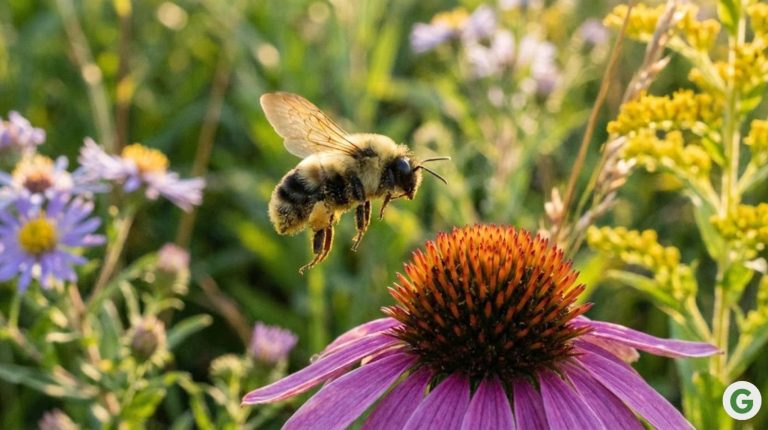Did you know that organic farming is not only good for the environment but also for our health? In fact, studies have shown that organic crops have higher levels of nutrients and antioxidants compared to conventionally grown ones. If you’re interested in starting your own organic farm, we’ve got you covered. In this article, we’ll share with you the 7 best introductory organic farming techniques for beginners.
From soil preparation to natural pest control, we’ll provide you with practical tips to help you succeed in your organic farming journey.
Soil Preparation Techniques
When preparing the soil for organic farming, we begin by incorporating compost and cover crops to improve fertility and enhance soil structure. These crop selection techniques play a crucial role in organic farming as they help maintain a healthy soil ecosystem. By carefully selecting the right crops, we can improve soil health, prevent pests and diseases, and enhance the overall productivity of our farm.
Additionally, mulching benefits are also important to consider. Applying mulch to the soil helps retain moisture, suppress weed growth, and regulate soil temperature. This not only reduces the need for excessive watering but also minimizes the use of herbicides.
Natural Pest Control Methods
To effectively manage pests in organic farming, we employ a range of natural control methods.
One effective method is biological control, which involves introducing natural predators or parasites to control pest populations. Ladybugs, for example, can be introduced to control aphids, while nematodes can be used to control soil-dwelling pests.
Another method is companion planting, where compatible plants are grown together to deter pests. For instance, planting marigolds alongside tomatoes can repel nematodes. Additionally, using physical barriers such as nets or row covers can prevent pests from accessing crops.
Regular monitoring and early intervention are also crucial in organic pest control.
Composting for Healthy Soil
Composting is an essential practice for organic farmers like us. Not only does it provide natural fertilizer benefits, but it also enriches the soil with vital nutrients.
Natural Fertilizer Benefits
Using natural fertilizer benefits our organic farm in several ways. First, it improves soil health through the process of composting. Composting provides a rich source of nutrients for our plants, helping them grow strong and healthy.
Composting also improves soil structure, making it easier for plants to access water and nutrients. By breaking down organic matter, composting creates a loose and crumbly soil texture that allows roots to penetrate more easily.
Furthermore, composting helps to increase the organic matter content in the soil. This increase promotes beneficial soil organisms and microorganisms that contribute to overall soil health. These organisms help to break down organic matter further, releasing even more nutrients for plants to absorb.
Additionally, the presence of these organisms enhances our organic pest control efforts. They help to naturally control pests and diseases, reducing the need for chemical interventions.
Soil Nutrient Enrichment
As we focus on achieving healthy soil, one effective technique for soil nutrient enrichment is through the practice of composting. Composting is a natural process that involves the decomposition of organic matter, such as kitchen scraps, yard waste, and even animal manure. By composting these materials, we can create a nutrient-rich soil amendment that improves soil structure and fertility.
One way to enhance the composting process is by incorporating cover crops and green manure. Cover crops, such as legumes or grasses, are grown specifically to protect and enrich the soil. They help prevent erosion, suppress weeds, and add organic matter when incorporated into the soil. Green manure, on the other hand, refers to crops that are intentionally grown and then plowed under to improve soil fertility. These crops, like clover or vetch, fix nitrogen from the air and release it into the soil, providing a natural source of nutrients for future crops.
By incorporating cover crops and green manure into our composting practices, we can further enhance the nutrient content of our soil. This not only improves plant growth and productivity but also promotes a healthier and more sustainable farming system.
Crop Rotation Strategies
Let’s talk about the benefits of crop rotation and effective techniques to implement it on your organic farm.
Crop rotation is a fundamental practice that helps improve soil health, prevent disease and pest buildup, and maximize yields. By rotating crops strategically, you can break pest and disease cycles, enhance nutrient availability, and promote overall sustainability in your farming system.
Benefits of Crop Rotation
What are the benefits of implementing crop rotation strategies in organic farming?
Crop rotation is a key technique that offers numerous advantages to organic farmers. One of the most significant benefits is improved yield. By rotating different crops on the same piece of land, farmers can reduce the risk of nutrient depletion and soil erosion. This results in healthier plants that produce higher yields.
Additionally, crop rotation helps prevent the spread of diseases. Different crops have varying susceptibility to pests and diseases, so by rotating crops, farmers can disrupt the life cycles of pathogens and reduce their impact on future crops. This not only promotes plant health but also reduces the need for chemical pesticides.
Effective Crop Rotation Techniques
To continue our discussion on crop rotation strategies, we can implement effective techniques that optimize organic farming practices. Crop rotation benefits not only the soil health but also the overall productivity of the farm. Here are three crop rotation planning techniques that can bring remarkable results:
- Diversify Crop Types: By rotating crops from different families, we can prevent the buildup of pests and diseases specific to one type of crop. This helps maintain a balanced ecosystem and reduces the need for chemical interventions.
- Include Cover Crops: Planting cover crops like legumes or grasses during fallow periods replenishes soil nutrients, prevents erosion, and suppresses weeds. They also enhance soil structure, moisture retention, and biological activity.
- Rotate Crop Systems: Alternating between cash crops, cover crops, and nitrogen-fixing crops can optimize nutrient cycling and reduce dependency on synthetic fertilizers. This approach promotes sustainable farming practices and improves crop yields over time.
Weed Management Techniques
In the realm of organic farming, implementing effective weed management techniques is crucial for maintaining the health and productivity of our crops.
One technique that has proven to be successful is mulch application. By covering the soil with a layer of organic material, such as straw or wood chips, we can prevent weed growth by blocking sunlight and hindering their germination.
Not only does mulch help control weeds, but it also conserves soil moisture and improves soil health.
Another effective method is cover cropping. By planting cover crops, we can outcompete weeds for nutrients and space, preventing them from taking over our fields.
Additionally, cover crops help improve soil fertility and structure, creating a healthier environment for our crops to thrive.
Water Conservation Practices
One essential practice we employ in organic farming is efficient irrigation to conserve water resources. Water is a precious resource, and by implementing the right techniques, we can minimize wastage and ensure sustainable farming practices. Here are three water conservation practices that every organic farmer should consider:
- Irrigation systems: Using modern irrigation systems such as drip irrigation or sprinklers can help deliver water directly to the plant roots, minimizing evaporation and ensuring efficient water usage.
- Rainwater harvesting: Collecting rainwater from rooftops and storing it in tanks or ponds can provide a valuable water source for irrigation. It reduces reliance on groundwater and helps replenish natural water sources.
- Mulching: Applying a layer of organic mulch around plants helps retain moisture in the soil, reducing the need for frequent watering. It also prevents weed growth and improves soil health.
Essential Organic Farming Tools
We rely on utilizing and maintaining essential organic farming tools to ensure efficient and productive farming practices.
Organic farming equipment plays a crucial role in implementing sustainable farming practices. One of the most important tools is a tiller, which helps prepare the soil for planting by breaking it up and removing weeds.
Another essential tool is a hoe, which is used for weeding and cultivating the soil around plants. A good quality rake is also necessary for leveling the soil and removing debris.
Additionally, a wheelbarrow is essential for transporting heavy loads of compost or harvested crops. Lastly, a drip irrigation system can help conserve water by delivering it directly to the roots of plants, reducing water waste.
Conclusion
So there you have it, folks! The 7 best introductory organic farming techniques for beginners.
Who knew that by going back to our roots and using natural methods, we could create healthier soil, control pests without harmful chemicals, and even save water in the process? It’s ironic how the old ways are often the best ways.
So let’s embrace these techniques, get our hands dirty, and start a revolution in sustainable farming. Mother Nature will thank us, and so will our taste buds.
Happy farming!




